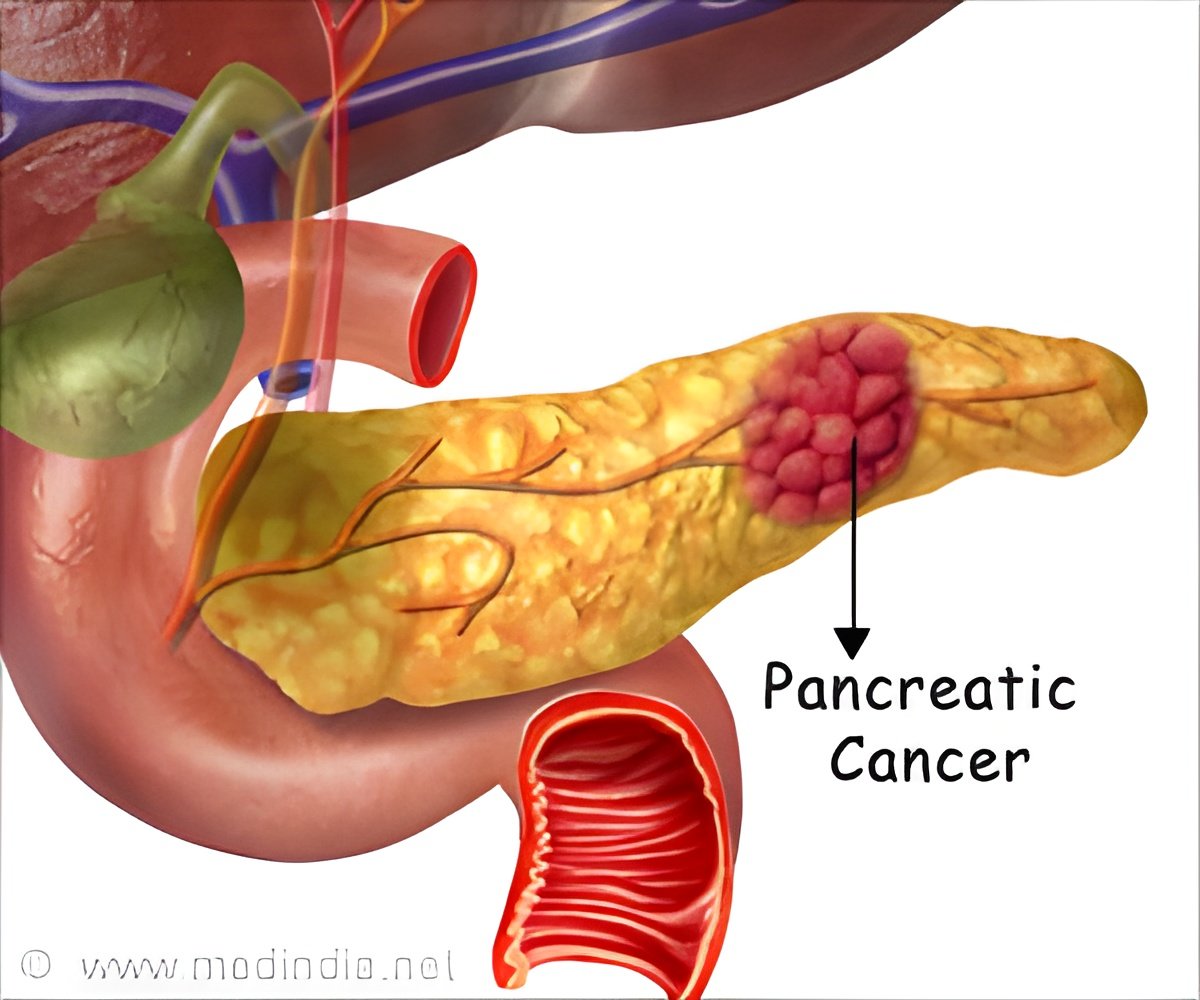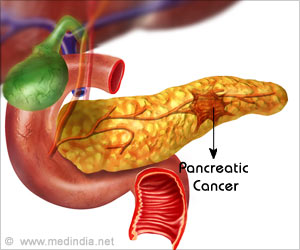Pancreatic cancer is a deadly form of cancer with a very high mortality rate. New research shows that early detection of pancreatic cancer offers a better chance of long-term survival.

As the word indicates, pancreatic cancer begins in the tissues of the pancreas, which is a glandular organ that lies behind the lower part of the stomach. The function of pancreas is to secrete enzymes that aid digestion and hormones to control metabolism of sugars.
Pancreatic cancer is a devastating disease with a high mortality rate. It is reported to be one of the leading causes of death, because symptoms that are specific enough to detect it actually do not appear till the disease is quite advanced and complete surgical removal is not possible. By the time it is diagnosed, the cancer has usually spread to other parts of the body. Eleven months is reportedly the average rate of survival for someone with advanced cancer of the pancreas. Signs and symptoms of pancreatic cancer include jaundice/yellow skin, dark urine, abdominal or back pain, unexplained weight loss, light colored stools and loss of appetite.
Since pancreatic cancer is usually detected at very late stages, research shows that it has a very poor 5-year survival rate of less than 5 percent. Thus for long-term survival, it becomes very crucial to determine strategies to identify people who have increased risk of developing pancreatic cancer. In cases where there is family history of this disease, it has been seen that the genes which are responsible for such an inherited predisposition remain largely unknown.
The Australian clinical researchers say “Pancreatic cancer likely takes between 10 and 20 years to develop, providing the potential for a very “broad window” of intervention if detected early, which may be possible for people who inherit a predisposition.”
The researchers from Sydney’s Garvan Institute of Medical Research, Dr Jeremy Humphris and Professor Andrew Biankin, studied medical histories and tumor samples taken from a cohort of 766 pancreatic cancer patients, who were operated on between 1994 and 2012. If patients had one or more first degree relatives who had suffered from pancreatic cancer, then they were in the category of people with inherited disposition; in other patients the cancer was considered to be sporadic.
The results of the study have been published online in the journal Cancer, which is a peer-reviewed journal of the American Cancer Society. The study authors are confident about the possibility of identifying novel susceptibility genes and design risk management and screening programs for the people who are considered to be genetically susceptible.
Pancreatic Cancer Treatment
Chemotherapy: It is recommended as a first line of treatment for advanced pancreatic cancer. When started after surgery, chemotherapy can help lower the risk of the cancer coming back. Chemotherapy using gemcitabine alone was the standard for the years following, however the combination of gemcitabine with erlotinib was found to increase survival. Studies have shown that the folfirinox chemotherapy regimen (using four drugs) and nab-paclitaxel were more effective than gemcitabine, but it was associated with higher rate of serious side effects.
Radiation therapy: Doctors generally use radiotherapy to try to shrink the tumor but is used less often than surgery and chemotherapy. At times, a combination of radiotherapy and chemotherapy are used to treat cancers that cannot be removed with surgery.
Palliative care: The primary focus of palliative care is not in treating the underlying cancer, but on treating symptoms such as pain or nausea. It can assist in decision making such as when or if hospice care would be beneficial. Biliary or intestinal obstruction can also be treated with palliative surgery. Palliative care could also help in treating depression which primarily accompanies the diagnosis of pancreatic cancer and even fatigue and cachexia as well.
References:
1. https://www.medindia.net/patients/patientinfo/pancreatic-cancer.htm
2. https://www.medindia.net/medical-quiz/quiz-on-pancreatic-cancer.asp
3. http://www.healthcanal.com/cancers/56183-early-detection-window-when-pancreatic-cancer-is-in-the-family.html
4. http://www.examiner.com/article/it-may-be-possible-to-better-identify-people-at-risk-for-pancreatic-cancer
5. http://www.keepmecurrent.com/maine_women/diane_atwood/catching-health-taking-action-against-pancreatic-cancer/article_de62856a-53db-11e4-b332-7fd8cbeed5d7.html
Source-Medindia














